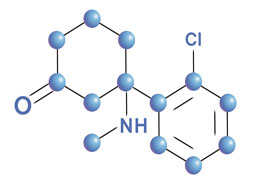
April 07, 2016

Source: Bigstock
In 2013 Medical News Today reported another highly successful trial, coauthored by a Mayo Clinic psychiatrist named Timothy Lineberry, M.D. A total of ten patients suffering from either bipolar disorder or major depressive disorder (who had all failed to respond to antidepressant medication) were treated with low-dose infusions up to twice a week, “until their depression symptoms went away…. Eight of 10 patients showed at least 50% improvement.”
NPR.org covered the story of a resistant”and consequently suicidal“patient in 2014 named Christopher Stephens. When doctors attached the IV to his arm one Monday morning, he was still in his usual dark state of mind. “Monday afternoon I felt like a completely different person,” said Stephens. Every morning that week, subsequently, he awoke with a desire to live and to “do things.”
By comparison, here’s another trial. “In 2013, Dr. Murrough’s group published the largest trial of off-label ketamine carried out so far, with 73 participants. The trial found that the drug reduced depression 24 hours after treatment in 64% of patients who had tried three or more other medications with unsuccessful results. A second group received the sedative Midazolam; in that case, the reduction was 28%.”
Some, like reporter Kristina Fiore, worry that its attraction as a drug of abuse (a.k.a. “Special K”) may yet be its undoing. Its nickname “elephant tranquilizer” doesn”t exactly help the marketing, and of course “K-holes””the black (psychological) hole into which abusers may fall if they themselves mis-dose”have become a common tele-comedy reference.
“Its hallucinatory effects have prompted researchers to search for alternatives that relieve depression just as quickly but without the side effects,” Fiore says. She casts doubt upon whether the “safer” ketamine can generate enough interest to keep (Big) Pharma in the K development business. As an inexpensive and (since 1962) generic drug, costing only $0.32 per dose, the question is valid.
Psychiatrists today are concerned that pharmaceutical companies are departing the mental-health research business in favor of treating less complex diseases. Harry Tracy, Ph.D., from NI Research says it’s a well-known problem, referring to the 70% drop-off in Big Pharma companies” support for in-pipeline psychiatry programs between 2009 and 2015.
Dr. Chittaranjan Andrad”professor and head of the Department of Psychopharmacology at the National Institute of Mental Health and Neurosciences in Bangalore, India”is an experienced psychiatrist whose academic work on this subject has helped define the field, and who uses ketamine to treat mental illness, largely intranasally. He says that “there is no industry standard.” Dr. Andrade’s view is that “Big Pharma can do the clinical trials that can make ketamine an approved treatment for depression. Otherwise, ketamine will always be used only off-label. So, that’s “a good.” The bad is that if patients receive ketamine only through Big Pharma products, then costs will skyrocket.”
The good news may be that because of K’s 50-year-long generic patent (for anesthetic use), if K’s on-label indications were in future extended to include depression therapy, then medical insurance companies already cover the use of ketamine, as an anesthetic, and have done so for years. This may help limit the danger of “skyrocketing” costs.
Commercially, the opportunity exists right now for the design of an optimal K delivery system. A 2007 patent for “intranasal ketamine spray” has been granted, amongst others.
To undo brain-cell stress and depression seems near miraculous. Let us hope ketamine is in fact the new miracle drug doctors and patients have been waiting for.